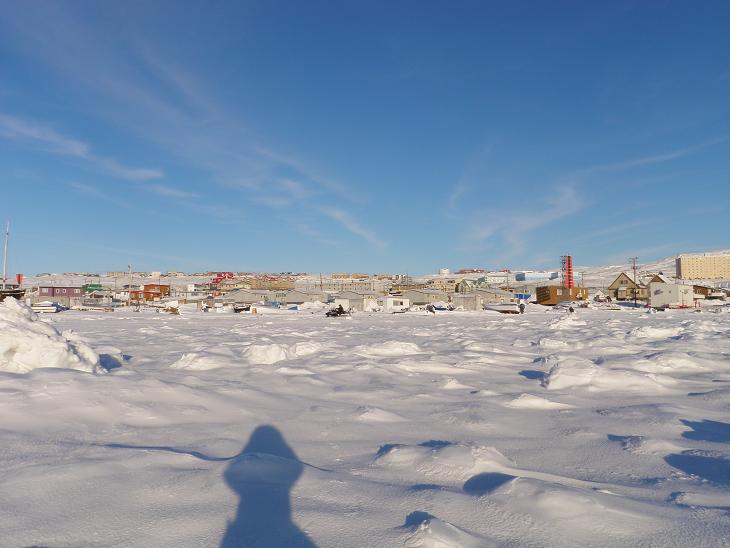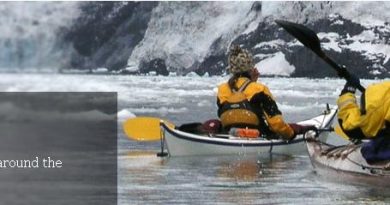Learning Inuktitut
Weather: A surprisingly warm-feeling -18c
IQALUIT, NUNAVUT – There’s a big problem in Nunavut. And that’s language.
The Inuktitut language in particular.
In short, fewer and fewer young people are speaking it. Walk around Iqaluit, the territorial capital of Nunavut, and you see Inuit kids outside, playing with each other in English.
That’s what this week’s Nunavut Language Summit is all about. About 250 people have flown in from all over the North. And everyone from elders and experts to artists and teenagers are here to talk language; how to preserve it, how to teach it, and most importantly, how to get the young generation to speak it.
The hotels are all booked solid and there’s a great energy in this little town.
But despite the language crisis amongst young people, many elders at the conference don’t speak English at all. And I’ve been shocked at how well my self-taught Inuktitut is going over with them.
Now this certainly isn’t because of any great talent on my part. But rather because I found a wonderful way to learn.
When we started working on Eye in the Arctic, back in October. I tried to find Inuktitut lessons back in Montreal but I couldn’t find any. Zero. I also tried to find a private teacher. But Inuit organizations here in Montreal all said there was no such person. I tried universities too but none of the relevant departments ever returned my calls.
Apparently, no Inuktitut speaker in all of Montreal wanted to take me on.
But somehow, I stumbled across “Tusaalanga Inuktitut”, an amazing series of online Inuktitut lessons.
They’re absolutely brilliant.
There’s vocabulary and grammar, and dialogues and, best of all, when you click on them you can hear everything being read out by native speakers.
I gave them a listen for about 15-20 minutes every day before leaving for work in the morning. And at night, I gave the relevant grammar section a quick once-over.
And here in Iqaluit, five months later, people, are actually understanding me. Now we’re only talking the basics here. But, just being able to ask elders ‘How are you?,’ ‘Have you seen so-and-so?’ ‘Where is she?’ ‘When will he/she be back?’ etc. has been incredibly helpful.
So, if any of you out there are keen on Inuktitut or just learning languages in general, you can check out the webiste at www.tusaalanga.ca.



